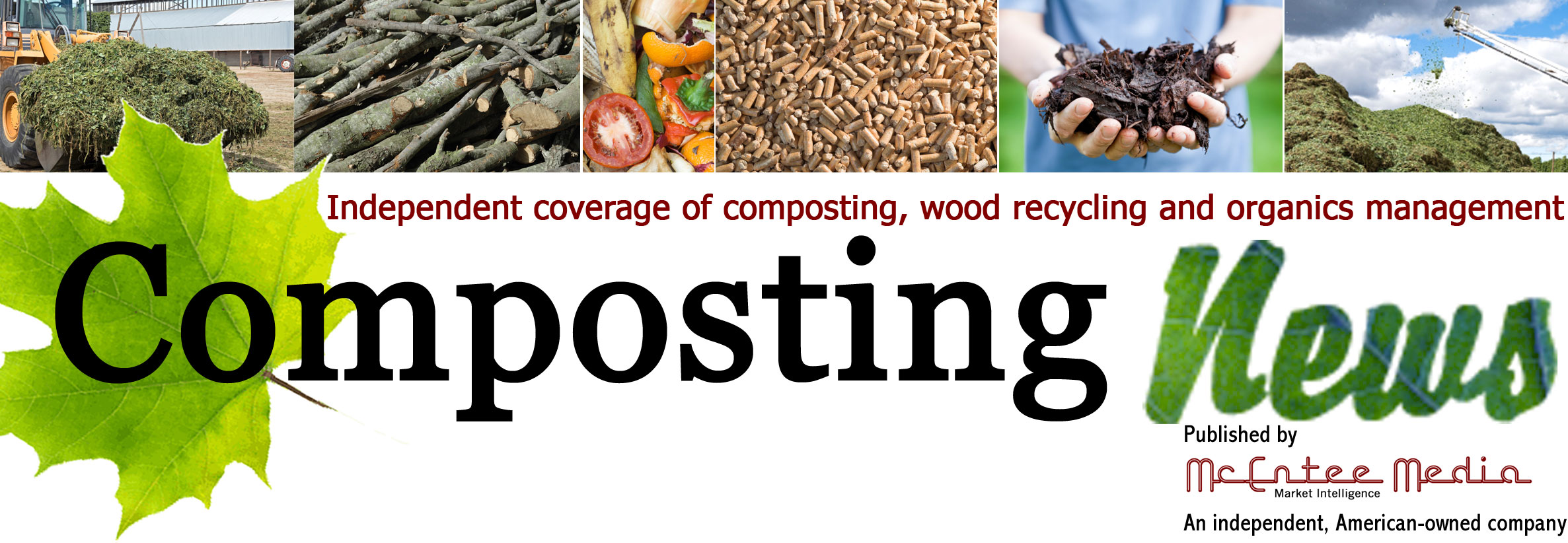By Ken McEntee
Toledo, Ohio residents last month voted to give Lake Erie the legal human right to sue polluters. A lawsuit seeking to void the new law was filed the next day by an Ohio farm family.
As reported previously in Composting News, algal blooms in Lake Erie, believed to be caused by phosphorus runoff, prompted activists in Toledo to draft the Lake Erie Bill of Rights (LEBOR), which essentially gives the lake and its watershed legal standing to sue businesses, farms and government agencies for practices that could cause pollution in the watershed. City voters, in a special election on February 26, passed the measure, which adds LEBOR to the city’s charter.
More than 61 percent (9,867) of voters who showed up voted in favor of LEBOR. Voter turnout represented less than 9 percent of the city’s 182,451 registered voters.
The next day, Drewes Farm Partnership, a five-generation family farm in Custar, Ohio, filed a suit against the city of Toledo in the Northern Ohio District of U.S. District Court seeking a temporary and permanent injunction on the implementation or enforcement of LEBOR.
Citing numerous Constitutional violations in the measure, Drewes’ suit calls for a temporary injunction in time for spring planting season, which starts in March for some crops.
“This unconstitutional and unlawful action by the city of Toledo has put the Drewes Farms’ fifth-generation family at risk,” the suit says. “The ability to properly fertilize its fields is crucial to the success of Drewes Farms’ farming operations. Drewes Farms’ fields are fertilized pursuant to Ohio law, best practices, scientific recommendations and Drewes Farms has been recognized as a leader in implementing new methods to both reduce the amount of fertilizer used and to reduce runoff from its fields.”
Although environmental activists say large corporate farms are the primary target of the LEBOR initiative, Joe Cornely Sr., director of corporate communications for the Ohio Farm Bureau (OFB), said all business that potentially impact the watershed – including compost manufacturers and wastewater treatment plants – are equally vulnerable to be sued by the lake.
“If this passes, anybody can be sued,” Cornely said before the election. “The first time something trickles off one of your reader’s compost piles, that nice big concrete pad they put down to protect the environment doesn’t matter. If it trickles off of there you’re liable to be sued.”
LEBOR specifically empowers any Toledo citizen to file lawsuits on behalf of the lake and its large watershed.
“It gives Toledoans authority over nearly 5 million Ohioans, thousands of farms, more than 400,000 businesses and every level of government in 35 northern Ohio counties plus parts of Michigan, Indiana, Pennsylvania, New York and Canada,” OFB said.
The organization said it supports Drewes’ lawsuit.
“(Owner) Mark (Drewes’) farm is an example of the right way of doing things,” said Adam Sharp, OFB executive vice president. “He’s employing a variety of conservation practices, water monitoring systems, water control structures and uses variable rate enabled equipment and yet he’s vulnerable to frivolous lawsuits.”
OFB said Drewes Farm Partnership has a “significant history of being dedicated to improving water quality.”
In the suit, Drewes Farms claims to be a good steward of the environment. The farm, which is owed by Mark Drewes, his wife, Melody and their son, Tyler, is a five-generation operation that grows corn, soybeans, wheat and alfalfa on land it owns and leases in four Ohio counties. The farm property is fertilized with manure and/or commercial fertilizers.
“Both manure and commercial fertilizers contain phosphorus, a crucial and necessary nutrient in growing crops like those grown on the farm property,” the suit says. “However, phosphorous has been identified by some as negatively affecting the Lake Erie watershed. Both types of fertilizer are applied on the farm property pursuant to legal requirements, industry best practices and scientific recommendations, with the goals of both minimizing the amount of fertilization applied and the amount of fertilizer-related runoff from the farm property. These practices include, but are not limited to:
- Not applying fertilizer or manure on frozen ground or snow-covered ground.
- Utilizing the Ohio Nutrient Management Record Keeper (“ONMRK”), a computerized record-keeping system, to identify the proper weather conditions to apply fertilizer and to minimize any runoff.
- Taking a soil sample from every 2.5 acres of farmland at least once every three years to determine nutrient levels. The nutrient levels are used to determine the appropriate amount of fertilizer—if any—that should be used on each acre of the farm property pursuant to the Tri-State Fertilizer Recommendations released by Michigan State University, the Ohio State University and Purdue University.
- In furtherance of Drewes Farms’ farming operations, Mark and Tyler Drewes both obtained Fertilizer Applicator Certificates from the Ohio Department of Agriculture. To obtain the Fertilizer Applicator Certificates, Mark and Tyler Drewes each attended a training class and paid a fee, the suit says. Both Mark and Tyler currently hold valid Fertilizer Applicator Certificates.
The suit says Drewes Farms has been proactive in utilizing modern science and investing in techniques to limit runoff from its farms and has installed filter strips along creeks and ditches to prevent runoff into waterways and uses cover crops during the offseason to further prevent runoff.
Drewes Farms is also participating in an edge-of-field study being conducted by the Ohio State University and the United States Department of Agriculture. The program tracks phosphorous and nitrate runoff and develops and measures different strategies to reduce runoff.
Among the LEBOR provisions Drewes Farm claims are unconstitutional:
- LEBOR exposes only “corporations” and “governments” to strict criminal liability for violating LEBOR, but not similarly situated individuals who may be engaged in the same actions or inactions.
- LEBOR purports to divest corporations, such as Drewes Farms, of their constitutional right to petition the government for redress of grievances in that it strips corporations of their status as “persons” under the law; their power to assert that state or federal laws preempt LEBOR; and their power to assert that the city of Toledo lacks the authority to adopt LEBOR.
- LEBOR purports to target any conduct by a corporation that impacts the “irrevocable rights for the Lake Erie Ecosystem to exist, flourish and naturally evolve,” but the terms “exist,” “flourish” and “naturally evolve” are undefined in LEBOR.
- LEBOR provides no standards for determining what activity would violate these undefined rights.
- LEBOR purports to invalidate any “permit, license, privilege, charter, or other authorization issued to a corporation, by any state or federal entity, that would violate the prohibitions of this law or any rights secured by this law and invalidates all laws adopted by the Ohio legislature and rules adopted by any state agency to the extent they contradict LEBOR.
“The potential liability to a family farm under LEBOR is enormous, and a LEBOR action could bankrupt any farm, as LEBOR imposes the maximum daily fine allowable under state law per day, purports to impose damages equal to restoring the Lake Erie Ecosystem without providing any standards for determining those damages, and would require a defendant to pay all costs of LEBOR litigation,” the suit says. “Thus, this vague and standardless charter amendment exposes farmers to massive liability for the use of any fertilizer or chemicals, even when the application of fertilizer or chemicals would otherwise be lawful under state and federal regulation, comports with best practices and meets scientifically recommended levels.”
The suit asks for a preliminary and permanent injunction prohibiting the city of Toledo from taking any action to enforce or otherwise implement LEBOR.
It also requests an entry of judgment declaring that LEBOR is void and unenforceable in its entirety and includes specific declarations that LEBOR is void for a variety of constitutional and Ohio legislative violations.
“The Charter Amendment is an unconstitutional and unlawful assault on the fundamental rights of family farms in the Lake Erie watershed,” said Thomas Fusonie, a partner at Vorys, Sater, Seymour and Pease LLP, of Columbus, attorneys for Drewes.
Follow us on social media:

Be the first to comment on "Lake Erie gets legal rights; lawsuit follows"